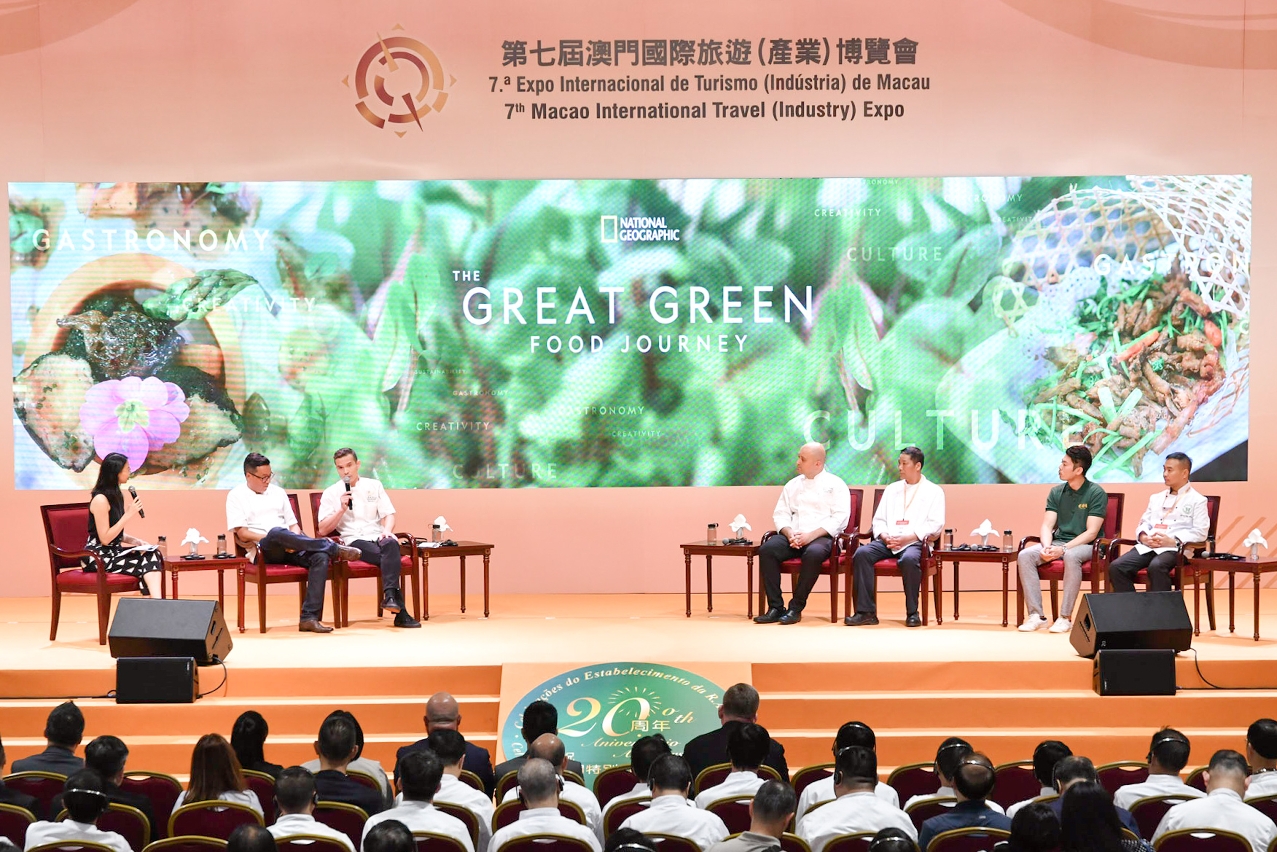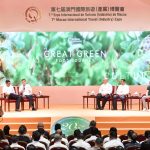 Some of the chefs who are spearheading the sustainable gastronomy movement in Macao share their approaches during a session at MITE
Some of the chefs who are spearheading the sustainable gastronomy movement in Macao share their approaches during a session at MITE
Macao Government Tourism Office (MGTO) and National Geographic presented an educational session titled The Great Green Food Journey at the opening day of the 7th Macao International Travel (Industry) Expo (MITE). The session is part of a campaign running until the end of May, in a partnership between MGTO and National Geographic, to promote Macao’s sustainable initiatives in the F&B area, in another initiative to develop Macao as a UNESCO Creative City of Gastronomy.
Some of the chefs who are spearheading the sustainable food movement in Macao were invited to speak at the session held today (April 26) afternoon at Cotai Expo of Venetian Macao. The session aimed to present to the audience of tourism professionals from around the world attending MITE, how some of the city’s players in the field are leading the change towards a more sustainable and creative food industry in the Asian region. Among the invited chefs were Anthony Sousa Tam from Root, Alex Gaspar from Sands Cotai Central, Hans Lee Rasmussen from IFT Educational Restaurant, Pun Man Kuai from Herbal Treasures in Studio City, Leong Kin Meng from Sum Yuen Vegetarian in Pou Tai Temple, together with the Business Development Director of Wong Chi Kei Noodles, Fei Wong. The presentation and discussion was moderated by Janice Leung Hayes, a Hong Kong food journalist and advocate for sustainable agriculture and living.
The guest speakers, who are also featured in a series of videos and other materials produced as part of the campaign conducted by MGTO and National Geographic, shared about their green practices, vision on Macao’s gastronomic sustainability, and its role in the development ahead for the tourism industry in the city. Some of their environmental friendly practices already include earth-to-table approach, by using rooftop gardens and aquaponics systems to grow their own ingredients, maximizing ingredient usage to minimize food waste, among others, aside from the top-notch presentation and creativity of their dishes.
In a keynote speech at the session, Senior Vice President for Asia Pacific and Middle East of National Geographic Partners, Con Apostolopoulos, remarked: “We have brought the stories of Macao’s sustainable gastronomy to life; showing people everywhere why Macao is a place to enjoy a more enriched travel experience. The Great Green Food Journey captures Macao’s unique and inspiring sustainable food culture through the lens of National Geographic, with videos, articles, social stories and much, much more. But it’s not just content. Together with MGTO, we inspire sustainable, creative eating; and through that hope to help change the face of the food industry in Asia, starting in Macao.”
The Great Green Food Journey educational session held at MITE is part of the campaign launched in January by MGTO and National Geographic, which will continue until the end of May. The campaign was unveiled at the “International Gastronomy Forum, Macao 2019” in a National Geographic special session focused on sustainable practices of the F&B sector, concerning food waste reduction and other related topics. For the last four months, as part of the collaboration project, National Geographic has been producing and disseminating stories in video and articles format, aiming to locate, support and promote sustainable practices in the F&B sector in Macao, as part of the initiatives carried out by MGTO to develop Macao as a UNESCO Creative City of Gastronomy.
MGTO and National Geographic campaign videos and others available at:
https://partnerships.nationalgeographic.com/macao/greenfoodjourney


